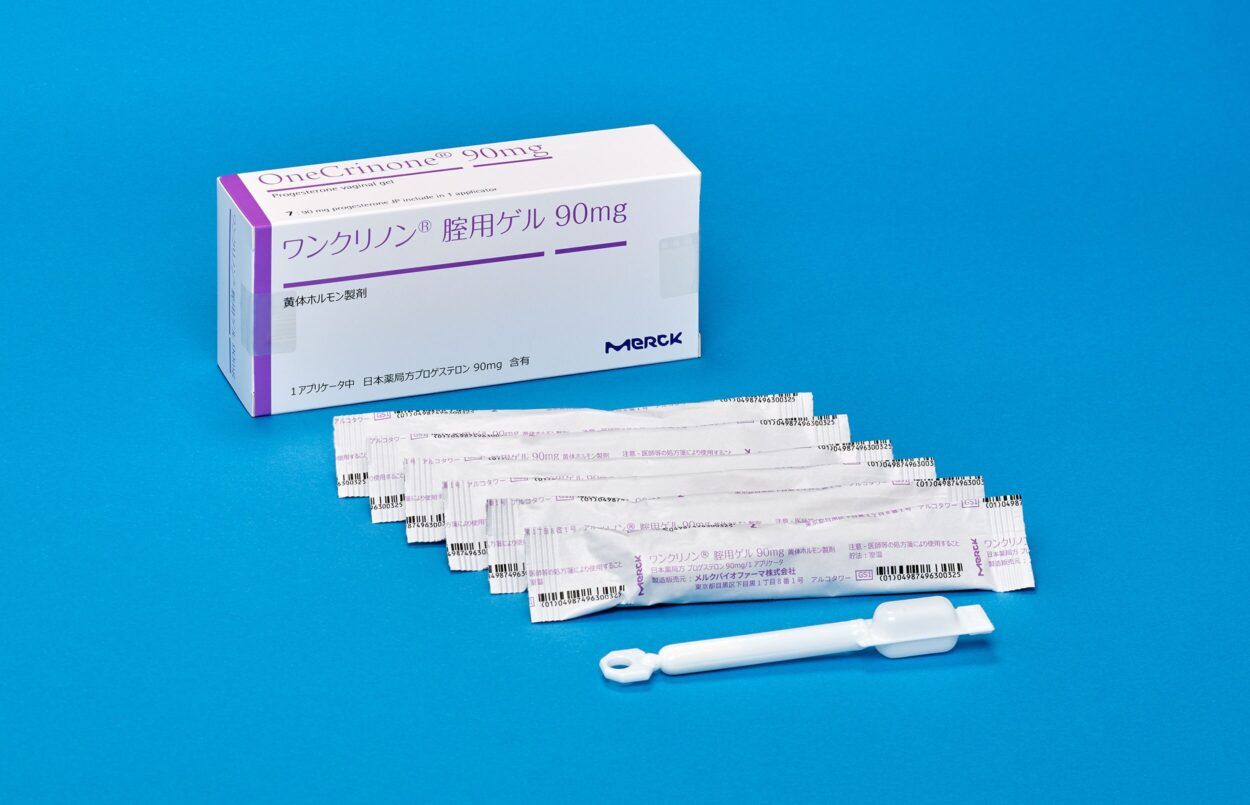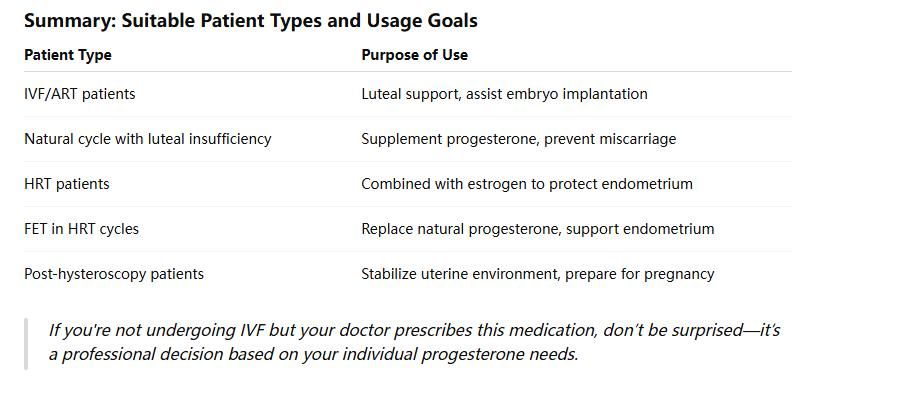In assisted reproductive treatment, medication use after embryo transfer is a topic of great concern for many patients. Today, let’s take a closer look at a commonly used vaginal medication — Crinone Vaginal Gel, also known simply as progesterone gel.
Crinone is a vaginally administered progesterone gel primarily used for luteal phase support, helping embryos successfully implant and supporting early pregnancy.
In this article, we'll explore this medication from multiple angles — including its function, how to use it, precautions, and real patient experiences.

Regulates and supplements the body’s progesterone levels
Supports the growth and maintenance of the endometrium
Improves luteal function and assists in maintaining a normal ovulation cycle
Promotes embryo implantation and supports the maintenance of pregnancy
Increases the success rate of assisted reproductive technologies (ART)
Helps maintain hormonal balance during early pregnancy
Alleviates physiological issues caused by luteal phase deficiency
Reduces the risk of miscarriage or implantation failure
Stabilizes the hormonal environment and enhances the body’s readiness for conception
1. What is this medication?
Crinone Vaginal Gel is a progesterone supplementation medication in gel form. It is administered vaginally, delivering progesterone directly near the uterus to help prepare the endometrium for embryo implantation. Each applicator contains 90 mg of progesterone and is typically used once daily.
This method of administration avoids the pain of injections and minimizes systemic side effects. It is widely used in countries like Japan for luteal phase support after in vitro fertilization (IVF).
2. Who needs this medication?
Crinone is suitable for women undergoing IVF, especially in the following scenarios:
After egg retrieval in an IVF cycle, when progesterone needs to be supplemented
During hormone replacement therapy (HRT) cycles for embryo transfer, when progesterone must be provided externally
In women with poor luteal function, who may experience progesterone deficiency after embryo transfer
Doctors typically prescribe Crinone starting from the day of egg retrieval or embryo transfer, continuing until around week 10–12 of pregnancy.
3. Who else might use Crinone besides IVF patients?
Apart from IVF patients, Crinone may also be used by other women who need progesterone supplementation to support the endometrium or maintain pregnancy:
Women with luteal phase deficiency in natural cycles
Even if ovulation occurs naturally, some women may have a short luteal phase or insufficient progesterone, leading to inadequate endometrial preparation, infertility, or early miscarriage.
Patients undergoing hormone replacement therapy (HRT)
For women in menopause or with diminished ovarian function, estrogen therapy is often combined with progesterone to prevent abnormal endometrial proliferation. Crinone is commonly used in this context.
Women with recurrent miscarriage or delayed embryonic development
Those with low progesterone levels in early pregnancy may benefit from Crinone to support the pregnancy.
Frozen embryo transfer in HRT cycles
When ovulation does not occur, external progesterone is essential to maintain the endometrium.
Women preparing for pregnancy after hysteroscopy
After uterine surgery, progesterone can help repair and stabilize the endometrial environment.

4. How to use it correctly?
Each applicator is designed for single use. Follow these steps:
Wash your hands and take out the applicator.
Gently shake to move the gel toward the tip.
Twist off the cap.
Find a comfortable position (lying down or squatting).
Insert the applicator gently into the vagina and push the gel out.
Discard the applicator after use. No need to rinse.
It’s best to use Crinone at bedtime, allowing the gel to remain in place longer. Some discharge the next day is normal and nothing to worry about.
5. Common Reactions After Use
Most women tolerate Crinone well, but some may experience:
A foreign body sensation in the vagina
Increased vaginal discharge, possibly white or beige gel-like residue
Mild abdominal bloating or discomfort
Rare symptoms like dizziness, mood changes, or breast tenderness
These symptoms are usually mild and temporary. As long as they do not worsen, treatment can usually continue without issue.
6. When to Seek Medical Attention
Though side effects are rare, you should be alert to the following:
Sudden severe lower abdominal pain
Heavy vaginal bleeding
Signs of blood clots: shortness of breath, leg swelling, chest tightness
If these occur, seek medical help immediately. A pharmacist or physician will assess whether to stop or switch medications.
7. Who Should Not Use Crinone?
The following individuals should not use Crinone:
Those with liver dysfunction
People with a history of blood clots or taking anticoagulants
Those with a history of breast or uterine cancer
Anyone with known severe allergies or adverse reactions to progesterone
Additionally, people with diabetes, asthma, depression, or migraines should use Crinone only under medical supervision.
8. Clinical Feedback
In my experience with patients, Crinone is generally well accepted. One 42-year-old patient had a failed first embryo transfer due to suspected luteal insufficiency. On her second attempt, she used Crinone and became pregnant. She shared:
"I felt some vaginal discomfort at first, but it didn’t affect my daily life. I got used to it pretty quickly."
Compared to progesterone injections, vaginal gel is often better tolerated—it avoids muscle soreness and the hassle of daily shots.
9. Pharmacist's Advice
Use the medication at the same time every day, preferably before bed
Do not stop using it abruptly, especially if you're already pregnant after embryo transfer
Keep the vaginal area clean; avoid using other vaginal medications unless directed
Report any unusual symptoms to your doctor promptly
Crinone Vaginal Gel is a user-friendly, well-tolerated, and effective progesterone support medication. In assisted reproductive treatment, it offers gentle and consistent luteal support for many patients. When used properly under a doctor’s guidance, most women can safely and smoothly complete the luteal support phase and look forward to a successful pregnancy.
